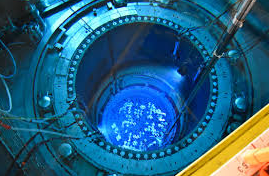Experts Highlight Safety, Public Perception, and International Cooperation as Critical Factors
As nuclear technology advances, Singapore is exploring the potential of small modular reactors (SMRs) as a future energy source. However, experts stress that addressing nuclear waste management and public acceptance is essential before any implementation.
Prime Minister Lawrence Wong announced during the Budget 2025 speech on 18 February that the country will evaluate nuclear energy’s feasibility and invest in building expertise in the field. In 2012, a government study deemed nuclear energy unsuitable, but recent technological progress has made it a more viable option.
SMRs, which are significantly smaller and more adaptable than traditional reactors, are already in operation in Russia and China. Countries such as the US, UK, and France are also investing in SMR projects. These reactors incorporate advanced safety features and could contribute to Singapore’s energy security while supporting its goal of reaching net-zero emissions by 2050.
Currently, natural gas powers about 95% of Singapore’s electricity supply, leaving the nation vulnerable to price fluctuations and supply disruptions. If nuclear energy becomes feasible, it could provide up to 10% of Singapore’s power needs by 2050, according to Professor Lee Poh Seng of the Energy Studies Institute.
The Nuclear Waste Dilemma
Despite the benefits of nuclear power, managing radioactive waste remains a major concern. Nuclear fuel waste can remain hazardous for thousands of years, and Singapore’s limited land and geological conditions make local disposal difficult.
Singapore will likely need to collaborate with nations that have established long-term disposal solutions, such as the US, UK, France, Canada, and South Korea, said Nick Ash, Southeast Asia energy business leader at Arup. Compact reactors produce less waste than conventional plants, but without an international waste disposal agreement, Singapore will face challenges in moving forward.
Alvin Chew, a senior fellow at the S. Rajaratnam School of International Studies, suggested two potential storage methods: temporary containment in a spent fuel pool before shipment overseas for processing, or deep geological burial at depths of 500 metres to 2 kilometres. However, no country currently accepts foreign nuclear waste, making international cooperation essential.
Public Perception and Acceptance
Beyond technical concerns, nuclear power faces resistance from the public due to safety fears. “The ‘not in my backyard’ mentality is a significant challenge, not just in Singapore but worldwide,” said Chew. Many people support nuclear energy but oppose having reactors near residential areas.
Public education has been key to acceptance in nuclear-reliant countries like France and Canada. Experts suggest Singapore could adopt similar strategies to inform citizens about safety measures and long-term benefits. Transparent communication on waste management and environmental impact will also be crucial in gaining public trust.
Developing a Strong Nuclear Framework
If Singapore proceeds with nuclear energy, experts emphasise the need for strict safety regulations, emergency response planning, and alignment with global best practices. Learning from established nuclear nations like the US, Sweden, and the UAE will be vital.
The US Nuclear Regulatory Commission is regarded as the “gold standard” for plant licensing, and Singapore could benefit from its expertise, said Andrew Chin, senior director at FTI Consulting. Establishing robust nuclear governance, securing international partnerships, and engaging with the public will determine the success of Singapore’s nuclear energy ambitions.








